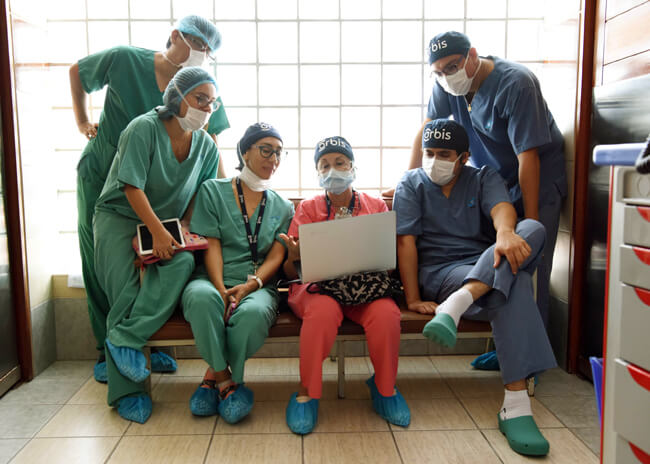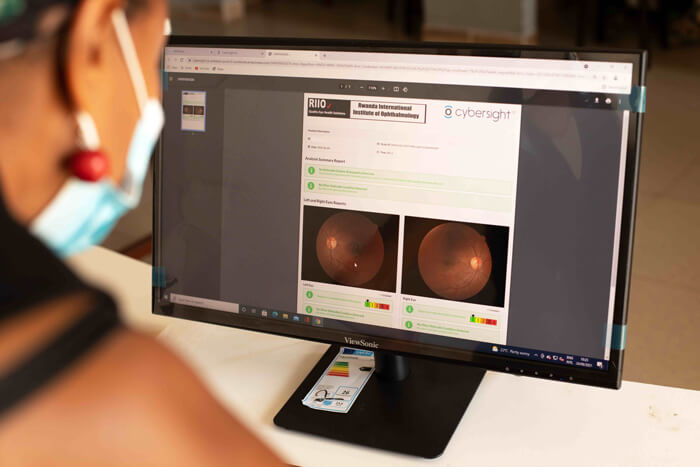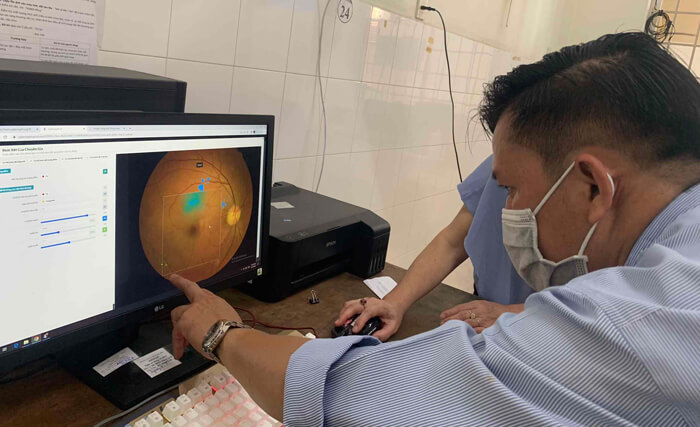Leading eyecare charity Orbis celebrates the 20th anniversary of its award-winning telemedicine and e-learning platform, Cybersight.
Launched in the early days of the internet, Cybersight now has more than 85,000 registered eyecare professionals hailing from nearly every country and region in the world. A new Cybersight mobile app is giving access to even more eyecare professionals with its offline functionality, critical for eye teams working in areas with poor or no internet connection.
Through Cybersight, medical professionals around the world can access training and education tools, courses and lectures anywhere, anytime – from a laptop, tablet or mobile phone. Cybersight’s advanced features, including long-distance mentoring and an AI diagnostic tool, are available for free for eyecare professionals in low- and-middle-income countries. Today 90% of people with vision loss live in low- and-middle-income countries.

Through Cybersight, Orbis’ team of 400 world-leading Volunteer Faculty (medical experts who give their time and expertise for free) can deliver training and consultations without having to leave their homes. To date, 30,000 consultations have been delivered on Cybersight to help eyecare professionals diagnose and treat patients with complex cases from all corners of the world, even reaching the frontline of conflict-affected areas like Ukraine and Syria.
The Cybersight team has undertaken comprehensive research to better understand how eyecare professionals benefit from the platform. This survey showed that professionals at all levels value Cybersight. Of Cybersight users surveyed, 99% said the platform increased their knowledge and skills, 75% said it enabled them to make better informed decisions and 72% said Cybersight increased their professional confidence.
The New Cybersight App
Orbis recently launched a new Cybersight mobile app that provides even easier access to these services for eyecare professionals. The app enables eye teams to create and respond to patient cases while offline, and automatically syncs when the user next connects to the internet. The flexibility this offline functionality provides is critical for eye teams working in areas with poor or no internet connectivity, including in remote or conflict-affected communities.
“The Cybersight app provides a lot of knowledge, especially the lessons we need to learn more about in paediatric eyecare,” says Dr Kieu Le The Mong, an ophthalmologist in Vietnam who specialises in retinopathy of prematurity (ROP), a leading cause of vision loss in children. “I use the app frequently to access information… and connect with mentor specialists in ROP.”

20 Years of Telehealth Innovation
The history of Cybersight in fact dates all the way back to 1998. At that point, Dr. Eugene Helveston, then part of Orbis Volunteer Faculty, created the first ever internet-based ophthalmic telemedicine program. In 2003, Cybersight officially launched, paving the way for landmark changes in ophthalmic education.
During Orbis’ visits to Havana, Cuba, Dr Helveston realised that in-person training projects were not enough; committed local doctors needed ongoing support. Having already experimented with remote consultations, he along with Orbis team members set about training local colleagues with digital imagery and clinical history recording.

Dr Kieu Le The Mong.
This would allow them to email cases to Dr Helveston at his home in Indianapolis. From there he could send back, via email, a diagnosis or recommendation for further tests and re-submission, or a suggested treatment plan. In doing so, Orbis’ first ophthalmic telemedicine system was born.
Over the past two decades, Cybersight has proven to be critical for ophthalmic training, especially in recent years. As the COVID pandemic unfolded, Orbis was already setup to meet the needs of eyecare professionals throughout the world – virtually. In the past four years, there have been more than 11 million views of Cybersight videos, over 119,000 webinar attendances and over 246,000 course enrolments.



